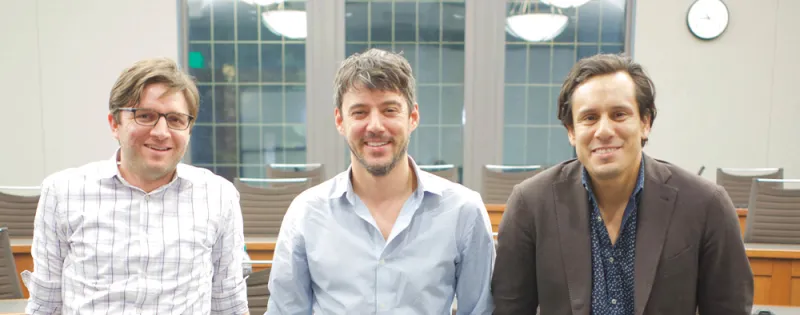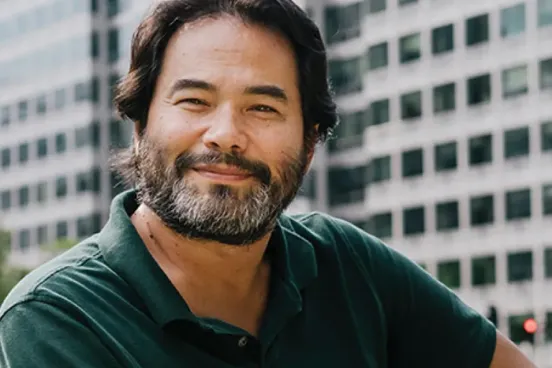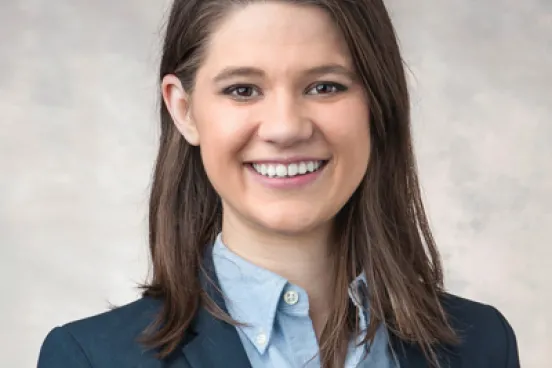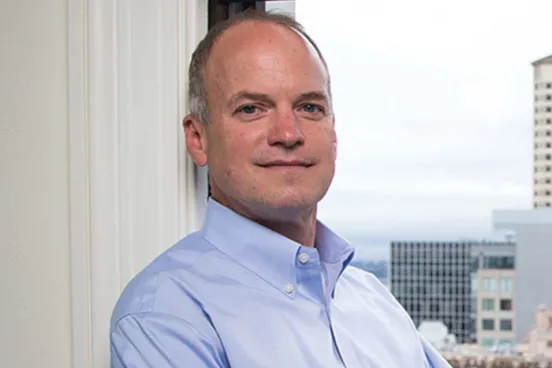
Blockchain has come into focus in the last several years. James Blakemore, ’13, and Josh Garcia, ’13, have expertise in the technology, which, as Blakemore explains, “allows people to verify transactions and come to consensus regarding the current distribution of an asset, like bitcoin, without relying on third parties like banks.”
The growing number of blockchain users has increased the need for consultants and lawyers experienced in it—a niche where Blakemore and Garcia are making their mark with their consulting and law firms. But a partnership wasn’t foremost on their minds as Michigan Law classmates, Blakemore recalls. “We met the first year, but started hanging out the last,” mostly due to Spoon Assassins—a live-action game where participants try to eliminate each other armed with disposable spoons. “Josh and I were pretty active players, which was our not-so-illustrious beginning as close friends.”
Following graduation, Blakemore joined Cleary Gottlieb Steen & Hamilton, and Garcia went to Goodwin Procter.
“I wound up on a small team that worked with a blockchain company to defend an action brought by the Department of Justice,” Garcia says. “I had to learn the technology and explain it to the partner. Since I was one of the only associates versed in blockchain, when blockchain-specific questions came in from startups, I was the go-to.”
Garcia then helped start the financial technology practice at White & Case, later helping to run Cooley’s blockchain group. Meanwhile, at Cleary, Blakemore represented foreign sovereigns and global financial institutions in securities class-action disputes and regulatory investigations into alleged bond and benchmark rate manipulation.
By 2018, Garcia had amassed a large network of contacts in the cryptocurrency community, including some who would later become clients. He brought together Blakemore and three other attorneys interested in blockchain and experienced in securities, money transmission, and startups. “We met for breakfast in New York,” Blakemore says, “and hashed out a business plan over a couple of months before taking the leap.”
Ketsal Consulting and Blakemore Fallon were born.
“Our practice ranges from advising token issuers on the securities law implications of their projects to helping cryptocurrency exchanges register as money transmitters,” says Blakemore. “We helped Rhode Island with their blockchain law. It was more of a consultation role because we are exposed to various state laws and often talk to state regulators.”
Garcia estimates that 90 to 95 percent of their clients are in blockchain. “But we don’t always deal with regulatory or crypto issues—sometimes it’s traditional legal representation, just in a very different context.”
It was at their five-year reunion when Blakemore and Garcia turned their thoughts to teaching after hearing Dean Mark West’s Law School update. Both loved their time at Michigan and had enjoyed teaching previously.
“Especially when you get to teach something you have seen develop for as long as five years—at that point, the majority of blockchain’s lifespan,” Garcia says. After meeting with Dean West—Blakemore’s Criminal Law professor—and Associate Dean Gil Seinfeld, they teamed up to teach Blockchain and the Law.
“It’s a fun course to teach, because crypto has these peculiarities that force you to return to first principles,” Blakemore says. “We explored it against the backdrop of the anti-government, anti-regulation movement it grew out of.”
“The class ended up being very doctrinal,” Garcia says. “The exciting things we discussed were enforcement actions, but the bulk was basic laws of securities, money transmission, and commodities—with elements of contract and tax law.”
Blakemore adds, “Law school is one of your last opportunities to explore intellectually outside your focus. I’m a huge proponent of taking a class that you’re interested in even if you think it might not be useful—it will be. You just don’t know how yet.”







